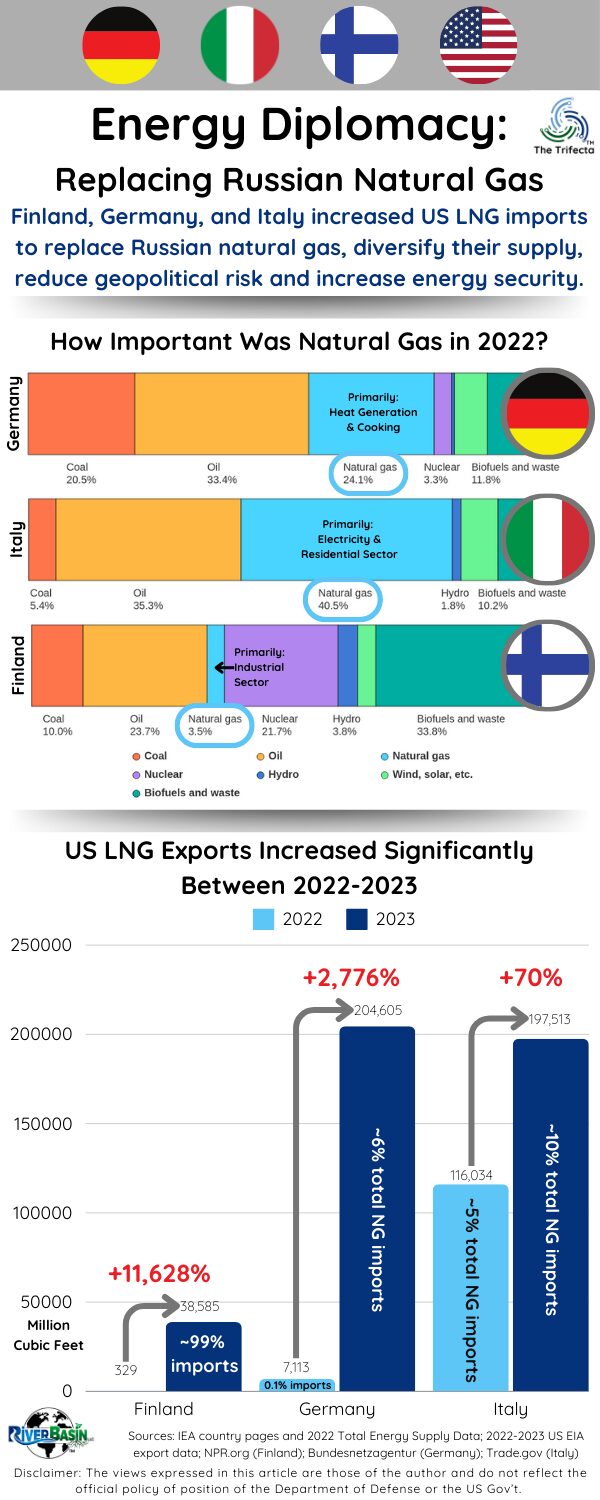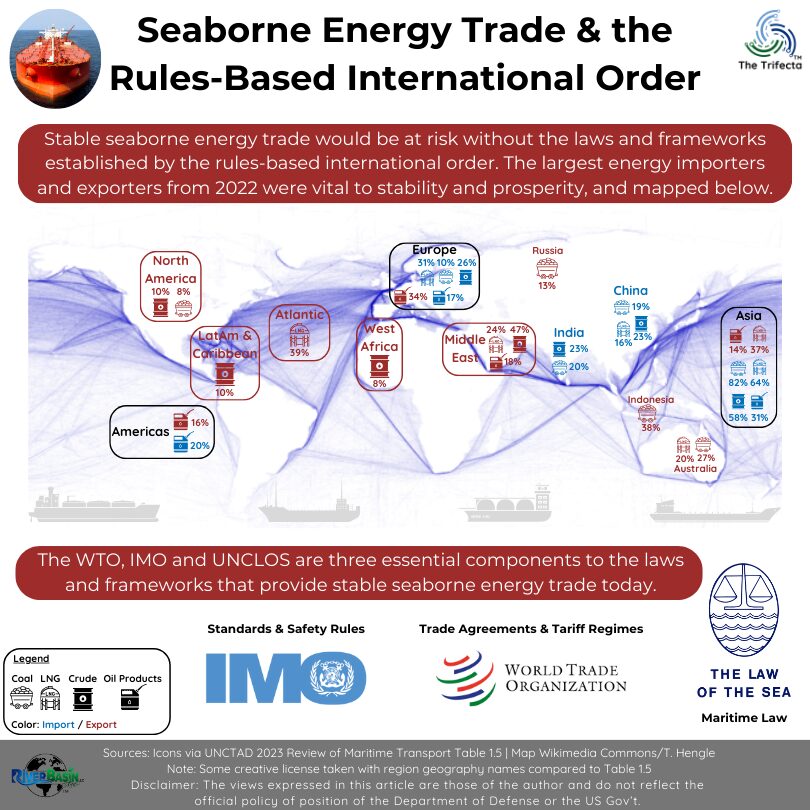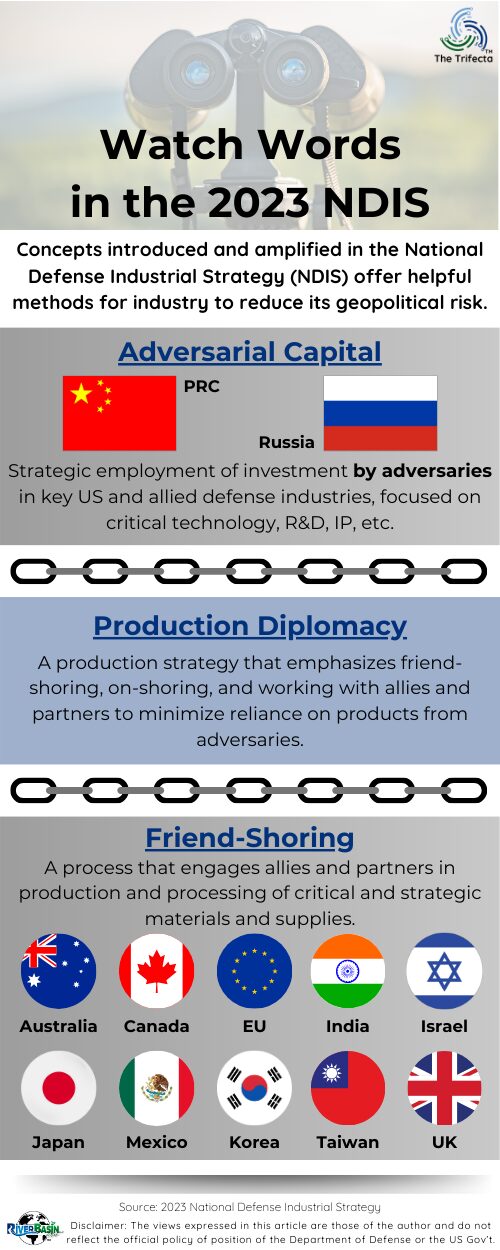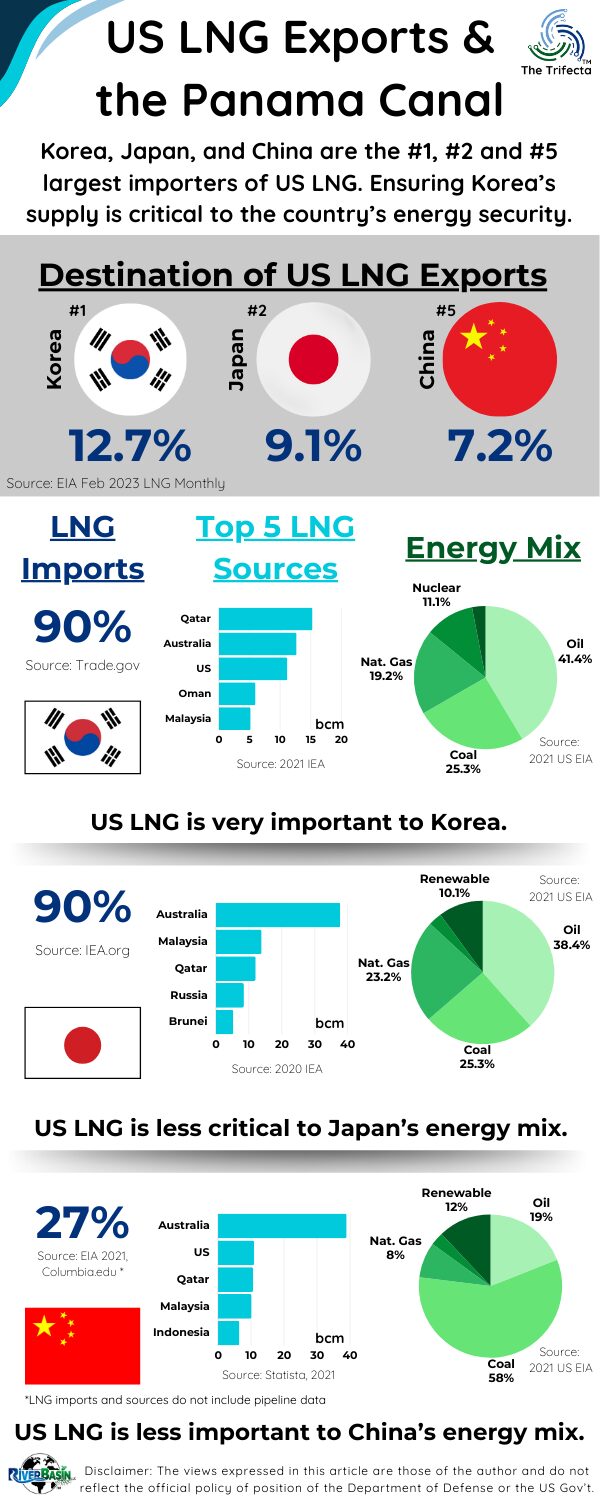Critical Infrastructure Underpins Daily Life
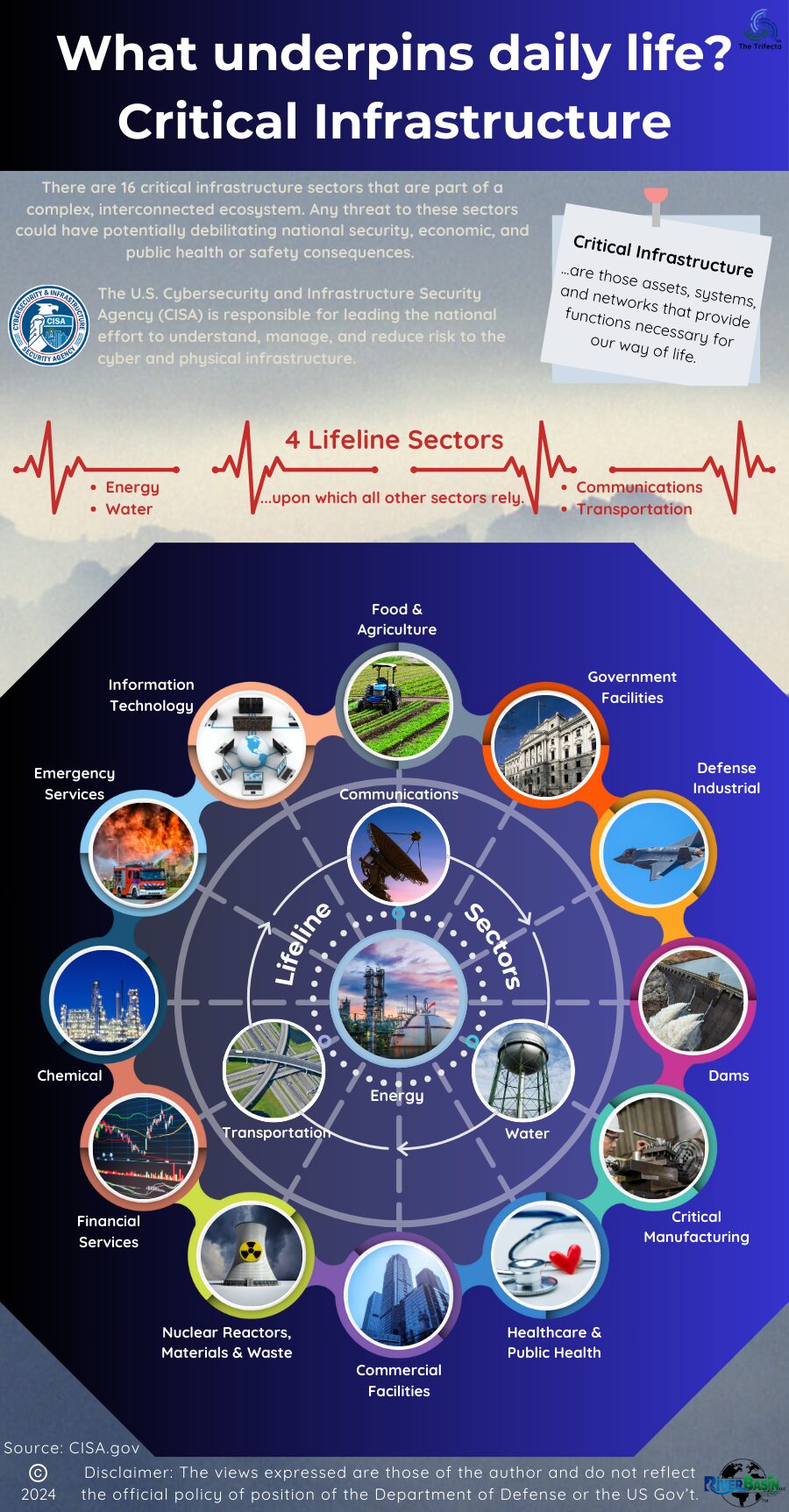
BLUF
Energy is designated as a “lifeline” sector by the US government because of its fundamental importance to economic activities, essential services and daily life.
Why does this matter?
Over 80% of US energy infrastructure is privately owned. Energy companies must acknowledge the rising geopolitical risks and take steps to safeguard their operations.
Key Take-Aways
- “Lifeline” sectors recognize the higher criticality of four of 16 critical infrastructure sectors, including energy.
- The energy sector stands alone in its ability to support all 55 critical infrastructure functions identified by CISA.
- Preparation to deal with growing geopolitical risks is essential for energy companies (and other critical infrastructure sectors).
Disclaimers: The views expressed in this article are those of the author and do not reflect the official policy or position of the Department of Defense or the U.S. Government. The appearance of external hyperlinks does not constitute endorsement by the United States Department of Defense (DoD) of the linked websites. The DoD does not exercise any editorial, security or other control over the information you may find at these locations.
“Lifeline” sectors recognize the higher criticality of four of 16 critical infrastructure sectors, including energy.
The Cybersecurity and Infrastructure Security Agency (CISA) leads the national effort to understand, manage, and reduce risk to our cyber and physical infrastructure. In order to do that, CISA identified 16 critical infrastructure sectors. Check out the infographic above to see all 16. These sectors contain interconnected assets, systems and networks that underpin daily American life.
Within the 16 sectors, four were designated as “lifeline” sectors.
- Energy
- Water
- Transportation
- Communications
The designation of lifeline highlights the essential nature of uninterrupted operations in these fields. CISA expects that recognition as a lifeline will facilitate collaboration and information exchange among key stakeholders in these sectors. This focus is designed to maintain the ongoing operations and services of these four sectors.
The energy sector stands alone in its ability to support all 55 critical infrastructure functions identified by CISA.
Related to the critical infrastructure sectors are the separate “critical functions.” Like the critical sectors, these functions fall within the government and private sector and the first list was published in 2019. Critical functions are grouped into four areas: connections, distribution, management, and supplies.
In total, 55 items comprise the national critical functions set. Identifying critical functions – separate from critical sectors – gave stakeholders a different perspective from which to consider their importance, as well as their interdependence.
Energy stands alone as a one-of-a-kind critical infrastructure sector, as it provides support for all 55 critical functions. Indeed, energy is the only sector in this position, making it “first among equals” as a lifeline sector.
CISA also plays a central role in critical infrastructure security and resilience. Each critical infrastructure sector has a government agency responsible for taking lead in that sector. For energy, the Department of Energy (DOE) is the Sector-Specific Agency. In 2015, DOE collaborated with several stakeholders to produce a Sector-Specific Plan (SSP), which identified risk management approaches and progress made to increase resilience and security in the energy sector.
Preparation to deal with growing geopolitical risks is essential for energy companies (and other critical infrastructure sectors).
CISA’s goal to ensure continued operations from each critical infrastructure sector requires preparation by all stakeholders involved. Because private industry dominates the energy sector, each energy company (and energy-adjacent company) needs to own their preparation.
The energy sector is interconnected through complex supply chains that span multiple countries and regions. Geopolitical events, such as trade disputes, sanctions, or geopolitical conflicts, can disrupt these supply chains, leading to delays in project development, procurement challenges, and supply shortages.
Energy infrastructure, including pipelines, refineries, power plants, and transmission lines, is vulnerable to geopolitical risks such as sabotage, cyber attacks, and political instability in host countries. Ensuring the security and resilience of energy infrastructure is essential to maintain the reliability of energy supply and protect critical assets.
Geopolitical instability can introduce uncertainty into energy markets, affecting investment decisions, project financing, and long-term planning. Energy companies and investors need to assess geopolitical risks and incorporate them into their risk management strategies to mitigate potential losses and safeguard their investments.
Geopolitical tensions, conflicts, or disruptions in key producing regions or along trade routes can cause supply disruptions, price volatility, and economic instability.

DOPSR 24-T-1714
Think About It…
- How does your company prepare for the increasing geopolitical risks you face?
- Who at your company engages DOE, CISA, or another government agency related to the “lifeline function” energy represents?
- What part of “critical infrastructure” does your company support?
- Which “critical functions” do you provide from the list of 55?
- Where are your operations or supply chains the most vulnerable to geopolitical risk?


